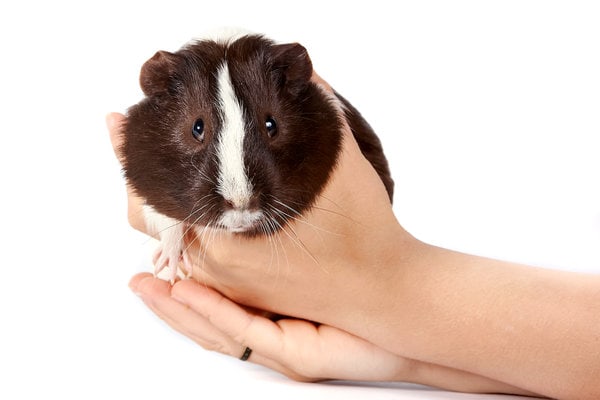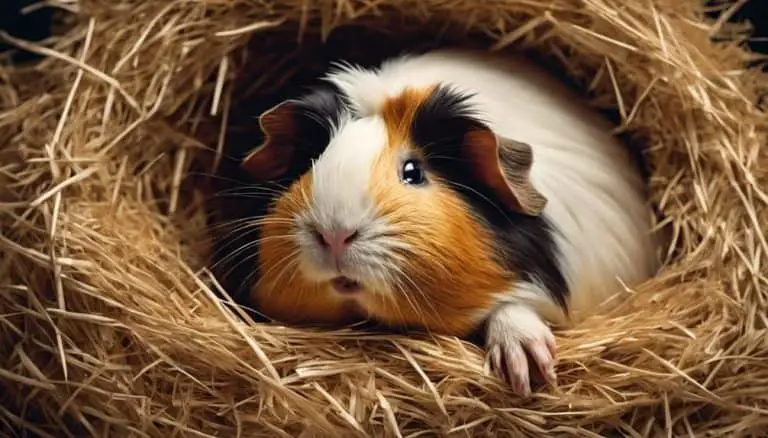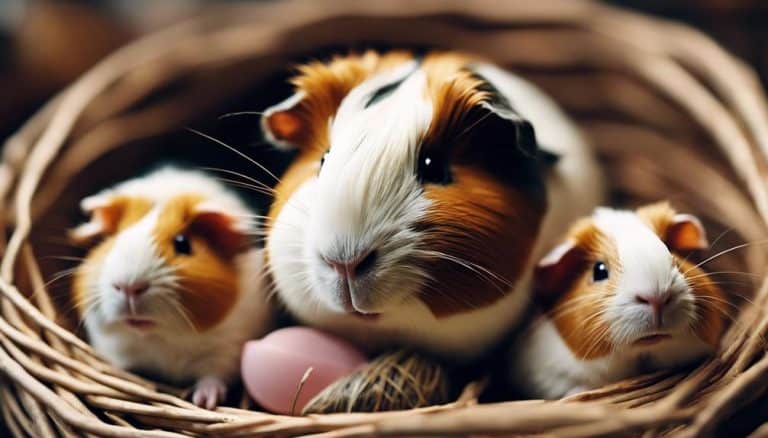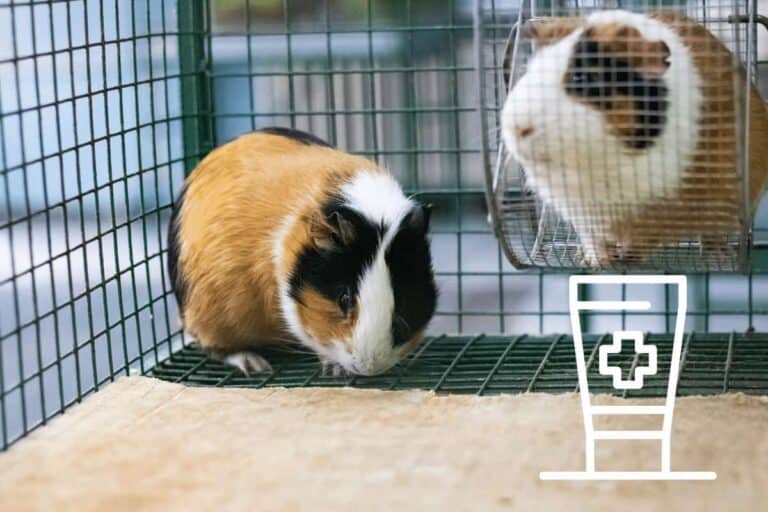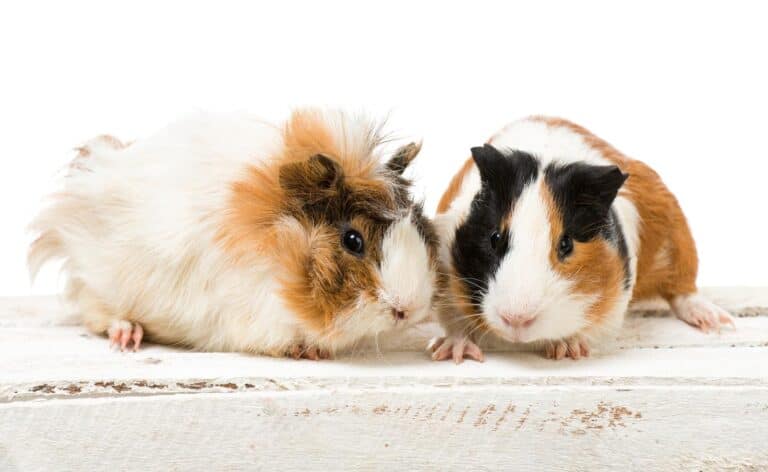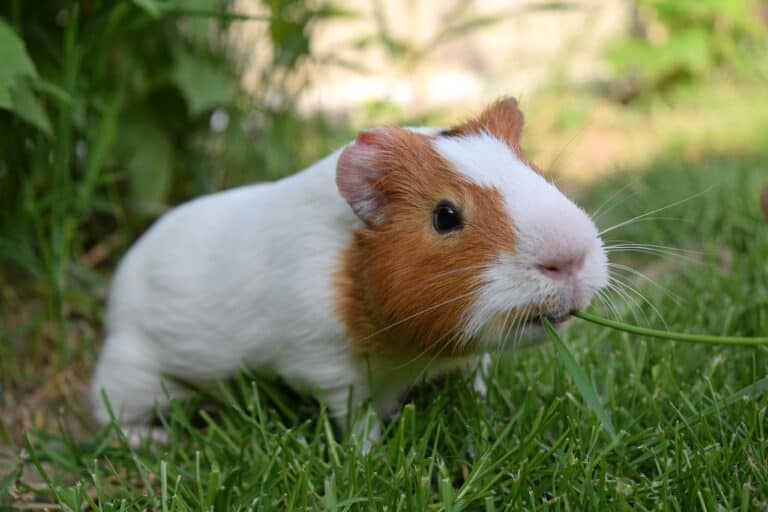When Do Guinea Pigs Stop Growing?
As they scamper around their cage, it’s hard to tell how much your guinea pig is growing. Is your guinea pig still a pup, or is it an adult? When do guinea pigs stop growing?
It’s an important question, as the age of your guinea pig will determine how you care for it. To answer this question, it’s important to understand guinea pig growth and development, the factors that affect growth, and how to tell the age of your guinea pig. Read on to discover the answers.
Key Takeaways
- Guinea pigs stop growing once they reach a year or two in age.
- Diet, exercise, and age are factors that affect guinea pig growth.
- Physical appearance, behavior, health, and feeding habits can help estimate a guinea pig’s age.
- Socializing, introducing new stimuli, and providing a balanced diet and exercise are important for caring for a growing guinea pig.
Guinea Pig Growth and Development
Guinea pig growth and development is an important process to understand to properly care for the animal. From birth, guinea pigs complete several stages of development before reaching adulthood.
Socializing guinea pigs is essential for their proper growth, as it allows them to build trust with their owners and become comfortable in their environment. Providing appropriate nutrition is also important, as a balanced diet can help ensure guinea pigs reach their full size and reach maturity.
Guinea pigs reach sexual maturity between 4 and 8 months of age, and their growth rate will slow as they reach adulthood. However, they will continue to grow until they reach a year or two in age. Once they reach this point, guinea pigs will stop growing and remain the same size until they die.
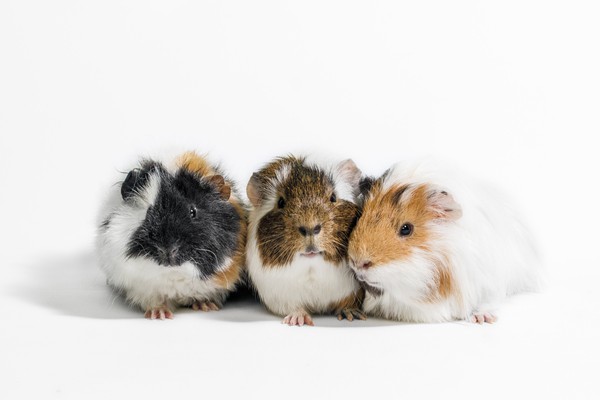
Factors That Affect Guinea Pig Growth
Factors such as diet, exercise, and age can influence the growth of a guinea pig. Feeding habits, in particular, are key in the growth and development of these small rodents. Proper nutrition and adequate amounts of fresh fruits and vegetables are essential for a guinea pig to develop and grow properly.
Exercise is also important, as guinea pigs need adequate space and time to roam and explore their environment. Age also plays a role, as young guinea pigs tend to grow more quickly than adults.
| Factors | Effects |
|---|---|
| Diet | Proper nutrition for growth and development |
| Exercise | Adequate space and time to roam and explore |
| Age | Young guinea pigs grow faster than adults |
Determining the Age of Your Guinea Pig
It can be difficult to accurately determine the age of a guinea pig. However, there are a few ways to roughly estimate the age of your guinea pig.
- **Physical Appearance**: As guinea pigs age, the fur begins to gray and the body becomes less rounded; the face, chest, and shoulders may become more angular.
- **Behavior**: Older guinea pigs may become more timid or less energetic compared to younger ones.
- **Health Status**: Guinea pigs may need spaying or neutering as they age, and any health problems due to age can be determined by a vet.
You can also observe your guinea pig’s feeding habits to get an idea of their age. As guinea pigs age, they may become less interested in their regular diet, or require more frequent feedings.
Overall, it can be tricky to pinpoint the exact age of your guinea pig, but by closely observing your pet’s physical characteristics, behavior, and health, as well as their feeding habits, you can get a better idea of their age.
Caring for Your Growing Guinea Pig
As your guinea pig grows, it is important to provide proper care to ensure its overall health and wellbeing. Socializing your guinea pig regularly is a key part of its development, allowing it to become more relaxed and comfortable around people and other animals. Introducing new scents, toys, and activities into its environment can help to stimulate its curiosity and promote exploration. D
iet is also a crucial element to consider when caring for a growing guinea pig. Feeding a balanced and nutritious diet can help to ensure that your pet has all of the essential vitamins and minerals it needs to stay healthy. Fresh vegetables, hay, and a small amount of quality pellets should make up the majority of your pet’s diet. Providing adequate space to roam and exercise is also important to help your guinea pig stay fit and active.
Regular vet visits and vaccinations are also recommended to ensure your pet’s continued health. By following these few simple steps, you can help to keep your guinea pig happy and healthy for years to come.
Conclusion
Guinea pigs typically reach full maturity by the age of 1 year, although their growth rate can be affected by environment, diet, and other factors. With proper care, a guinea pig can continue to thrive and lead a healthy life for many years.
Caring for a guinea pig is like caring for a small child – it requires patience, dedication, and a commitment to providing the best possible environment to ensure its growth and development. With the right care, your guinea pig can become a beloved companion for many years to come.

